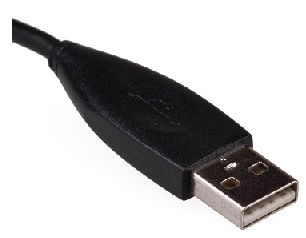Security is one of the biggest concerns with internet use today. While Usenet is generally a much safer environment in which to operate it is still subject to many of the same dangers as any other online activity. Usenet users are increasingly concerned with taking measures to improve the privacy and security of their online activity.
As a result, Usenet providers have taken action to improve the security and privacy of their customers. The most important of these measures is the introduction of 256-bit SSL encryption. SSL encryption is now offered as an add-on in many of the deals offered by Usenet providers. It is regarded as the most effective way to secure transfers and protect sensitive data.
What is SSL?
SSL stands for Secure Sockets Layer and it is an encryption technology that prevents the data and information that is passed between the user and the server becoming compromised. The original version of SSL was created by Netscape and it provides the same level of encryption used by banks and credit card companies online. While the technology has been used by companies dealing with sensitive financial transactions for many years, it has been increasingly applied by Usenet companies to provide added security when accessing information on Newsgroups.
How SSL Works?
SSL provides encryption between two points, in this case the client and the Usenet server. When SSL is used to login to Usenet, it forms a virtual tunnel. This tunnel acts as a barrier to keep the information being exchanged safe from any third party trying to access it. It also prevents anybody intercepting and tampering with the data within the transfer. All information is encrypted at source and is decrypted by the newsreader allowing the information to be viewed.
Benefits of SSL
SSL protection can defend against password and login theft. A problem that is particularly common in the online world. It also keeps sensitive information safe, secure and anonymous during the transfer.
SSL security becomes increasingly important when using an open Wi-Fi connection or other public network. Here anyone is able to see your login information and what you are transferring or posting. If you’re using Usenet to transfer data in public hotspots, then SSL should always be utilized.
Another benefit of SSL encryption, and possibly the key benefit with regards to Usenet, is to protect against traffic shaping. Traffic shaping or bandwidth throttling is when an ISP throttles bandwidth to lower the strain on their resources. This can drastically cut transfer speeds. As banking and other sensitive transactions take place through the same protocol, the ISP will avoid this practice. Also various throttling techniques, such as deep packet inspection, become increasingly difficult when utilizing SSL encryption.
Is SSL Necessary?
If you have reason to safeguard the privacy and integrity of the information you are transferring on Usenet, or have fallen victim to the traffic shaping activities described above, then SSL will be an invaluable service.
The only negatives to using SSL are the possible increased cost of your service and the small detrimental effect on your transfer speeds. However, as SSL is now offered as a basic service with most providers, the small increase in cost and decrease in speed are a small price to pay for the peace of mind which comes with the added security of your online activity.



